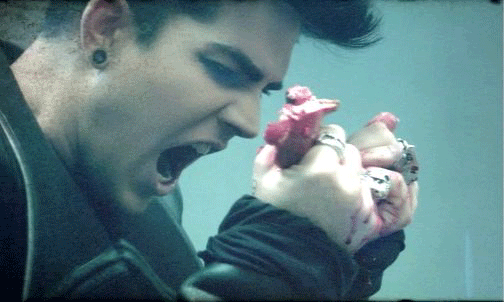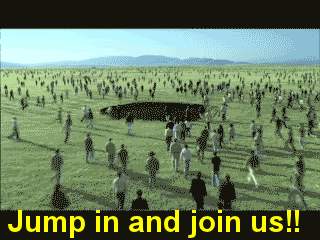5.29.13 Adam to be in Elvis Tribute Book, Photoshoot today
May 29, 2013 23:55:17 GMT -5
Post by Q3 on May 29, 2013 23:55:17 GMT -5

Our BB will pave his own way to music immortality!
When talking about the Elvis v Adam connection (pictures aside) this IS the Atmosphere, just different prejudices...
Elvis' first RCA single "Heartbreak Hotel" -- released in 1956 -- his sixth single overall -- was #1 on the Billboard Air Chart. [Elvis' first 5 singles were released on Sun Records only in the US South. They were played on the radio. This was his first national release.]
The BB Air chart was the chart of the songs most played by DJs.
Heartbreak Hotel was also #1 on Country Western radio and R&B radio.
**
Elvis was pretty close to an overnight success -- he released his first single for Sun Records in July 1954 -- a Rockabilly song targeted to Country Western radio and jukeboxes. One year later he released "Baby Let's Play House" which was #5 on the Billboard Country Singles chart in July 1955. He primarily did Rockabilly/CW/Hillbilly music until 1956. And he continued to release country music throughout his career.
By the spring of 1956, rock 'n' roll sensation Elvis Presley is fast becoming a national phenomenon. His first single for RCA records, "Heartbreak Hotel," is number one on the charts, and plans are in the works for his movie debut. Everywhere Presley performs, his sultry looks, swinging hips, and dynamic vocal style drive teenage listeners wild. His ability to perform music influenced by black rhythm and blues for a white audience brings this music to the growing postwar "Baby Boom" generation.
Presley has already appeared six times on national television, but it is his appearance on The Milton Berle Show on June 5, 1956, that triggers the first controversy of his career. Presley sings his latest single, "Hound Dog," with all the pelvis-shaking intensity his fans scream for. Television critics across the country slam the performance for its "appalling lack of musicality," for its "vulgarity" and "animalism." The Catholic Church takes up the criticism in its weekly organ in a piece headlined "Beware Elvis Presley." Concerns about juvenile delinquency and the changing moral values of the young find a new target in the popular singer.
After Berle's show, Ed Sullivan, whose variety show is one of television's most popular, declares that he will never hire Presley. Steve Allen, who has already booked Presley for The Tonight Show, resists pressure from NBC to cancel the performance, promising he will not allow the singer to offend. When Presley appears on Allen's show in July, he good-naturedly agrees to spoof his image by dressing in white formal wear and singing "Hound Dog" to a basset hound. The show garners high ratings.
In August, Ed Sullivan reverses his decision and announces he has signed the young star to an unprecedented $50,000, three-show contract. During the first two appearances, although the camera sometimes pulls far back to show Presley's gyrations at an unthreatening distance, there is no effort to control what Presley does or sings. But for the final show, the CBS cameras reveal Presley only from the waist up, even during his performance of a gospel tune. At the end of the show, Sullivan makes it a point to put his arm around Presley and compliment him for being "a real decent, fine boy." Some historians believe the camera instructions may have been orchestrated by Presley's manager, Colonel Tom Parker, in order to provoke publicity.
Presley's music, with its combination of both rhythm and blues and country influences, helps launch rock 'n' roll; his intense popularity among America's youth makes him one of the first media superstars. By the time of his death 20 years later, Presley will have produced 90 record albums, charted 149 singles, including 18 at number one on the Billboard chart, acted in 31 films, and performed before countless fans. His funeral is a national media event.
www.pbs.org/wgbh/cultureshock/flashpoints/music/elvis.html
Presley has already appeared six times on national television, but it is his appearance on The Milton Berle Show on June 5, 1956, that triggers the first controversy of his career. Presley sings his latest single, "Hound Dog," with all the pelvis-shaking intensity his fans scream for. Television critics across the country slam the performance for its "appalling lack of musicality," for its "vulgarity" and "animalism." The Catholic Church takes up the criticism in its weekly organ in a piece headlined "Beware Elvis Presley." Concerns about juvenile delinquency and the changing moral values of the young find a new target in the popular singer.
After Berle's show, Ed Sullivan, whose variety show is one of television's most popular, declares that he will never hire Presley. Steve Allen, who has already booked Presley for The Tonight Show, resists pressure from NBC to cancel the performance, promising he will not allow the singer to offend. When Presley appears on Allen's show in July, he good-naturedly agrees to spoof his image by dressing in white formal wear and singing "Hound Dog" to a basset hound. The show garners high ratings.
In August, Ed Sullivan reverses his decision and announces he has signed the young star to an unprecedented $50,000, three-show contract. During the first two appearances, although the camera sometimes pulls far back to show Presley's gyrations at an unthreatening distance, there is no effort to control what Presley does or sings. But for the final show, the CBS cameras reveal Presley only from the waist up, even during his performance of a gospel tune. At the end of the show, Sullivan makes it a point to put his arm around Presley and compliment him for being "a real decent, fine boy." Some historians believe the camera instructions may have been orchestrated by Presley's manager, Colonel Tom Parker, in order to provoke publicity.
Presley's music, with its combination of both rhythm and blues and country influences, helps launch rock 'n' roll; his intense popularity among America's youth makes him one of the first media superstars. By the time of his death 20 years later, Presley will have produced 90 record albums, charted 149 singles, including 18 at number one on the Billboard chart, acted in 31 films, and performed before countless fans. His funeral is a national media event.
www.pbs.org/wgbh/cultureshock/flashpoints/music/elvis.html








